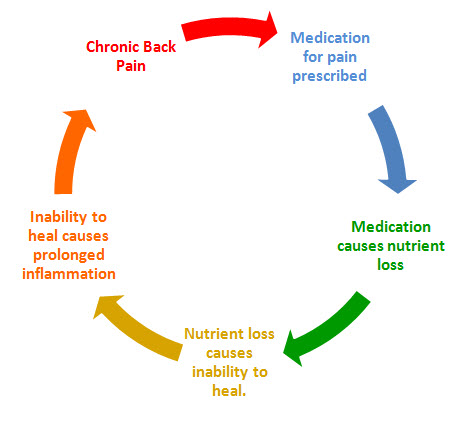A recent report on CBS Health Watch Warns About Sudden Cardiac Death Being Caused by Common Medications Prescribed for ADD/ADHD
 Doctor Osborne’s Comment
Doctor Osborne’s Comment
I have been saying for years that medications like ritalin and adderall are nothing more than cocaine for children. Let’s take a look at the facts surrounding ADD and ADHD.
Diagnosing ADD/ADHD has no definitive testing protocol. The diagnosis is typically based on opinion of teachers, parents, and doctors. In the last 60 years, we went from a few thousand to more than 4 million prescriptions given annually for children with this condition. Further more, Ritalin and Adderall have not been shown to improve grade performance at school, but this is commonly touted as on of the main reasons for their use. As a matter of fact, Ritalin and Adderall work on the same neural receptors as cocaine and are classified as schedule II agents because of their potential for abuse. Common side effects include:
- sudden cardiac death
- abdominal pain
- insomnia
- delayed growth
- anxiety
- nervousness
- agitation
- hallucinations
- weight loss
- increased heart rate
- addiction
Common Chemicals in our Food:
- Breakfast cereals
- Yogurt
- Lunch meats
- Breads
- Pasta
- Flavored Beverages (Gatorade, Soda, etc)
- Dried fruits
- Candy and gum
- Canned fruits and vegetables
- Salad dressings and marinades
A number of research studies have found that diet changes improve behavior. The list below is only a small sample:
- Shannon in 1922 studies found that 30-50% of children improved after an elimination diet.
- Dr. Feingold (1200 pediatric case studies) showing that eliminating artificial colors and flavorings improved behavior.
- A 1979 study by in New York City showed that reducing the sugar content of the school feeding program increased district test scores by 15.7% over a 4 year period.
- a 1997 study found an association between provoking foods and increased brain electrical activity leading to ADHD like symptoms.
- A 1991 review on the implementation of nutrient dense foods into the diet of school aged children found that conduct, intelligence, and academic performance all improved.
- A 1986 study discusses how diet effects the production of neurotransmitters.
- Review of 14 studies by Schardt revealed the following: ADHD, asthma, eczema, irritability, sleep disturbances, food allergies, and other severe behavioral disorders were made better by removing additives from the diet.
What You Can Do:
- Eliminate processed and packaged foods with artificial ingredients from your child’s diet.
- Have your child allergy tested using blood tests that measure delayed reactions.
- Test your child for nutritional deficiencies as these can disrupt how the body is able to produce the nerve chemicals responsible for communication in the body.
- Educate your child about the importance of nutrition and how it effects their health.
- Take your child to the chiropractor to help rule out nerve interference as a contributing factor to their symptoms.










